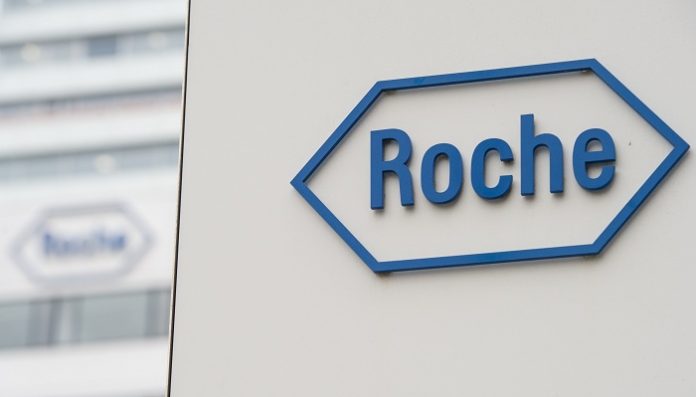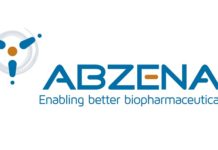Roche announced that the U.S. FDA has issued an EUA for intravenous Actemra/RoActemra® (tocilizumab) for the treatment of COVID-19 in hospitalised adults and paediatric patients (two years of age and older) who are receiving systemic corticosteroids and require supplemental oxygen, non-invasive or invasive mechanical ventilation, or extracorporeal membrane oxygenation (ECMO). The EUA is based on results from four randomised, controlled studies that evaluated Actemra/RoActemra for the treatment of COVID-19 in more than 5,500 hospitalised patients. The results of these studies suggest that Actemra/RoActemra may improve outcomes in patients receiving corticosteroids and requiring supplemental oxygen or breathing support.
“Even with the availability of vaccines and declines in deaths from COVID-19 in various parts of the world, we continue to see new hospitalisations from severe forms of the disease,” said Levi Garraway, M.D., Ph.D., Roche’s Chief Medical Officer and Head of Global Product Development. “We are pleased that Actemra/RoActemra is now authorised as an option that may help improve outcomes for adults and children hospitalised with COVID-19 in the United States.”
The four randomised, controlled studies included in the EUA submission investigated the safety and efficacy of Actemra/RoActemra in more than 5,500 hospitalised patients with COVID-19. The RECOVERY Actemra/RoActemra study was led by researchers in the United Kingdom and included more than 4,000 hospitalised COVID-19 patients. Roche-sponsored global trials included the placebo-controlled EMPACTA, COVACTA and REMDACTA studies. There have been no new safety signals identified for Actemra/RoActemra in any of these studies. The most common adverse reactions seen (incidence ≥ 3%) are constipation, anxiety, diarrhoea, insomnia, hypertension and nausea.
The U.S. FDA Letter of Authorisation and Fact Sheets for patients and health care professionals are available for download with the latest information on this EUA. For more information on how Roche is responding to the global COVID-19 pandemic, please visit our COVID-19 response page.
In these exceptional times, Roche stands together with society, governments, healthcare providers and all those working to overcome the pandemic.
About the Emergency Use Authorization (EUA) for Actemra/RoActemra
Actemra/RoActemra has not been approved by the U.S. FDA in this setting, but the U.S. FDA has made Actemra/RoActemra available under an emergency access mechanism called an EUA as a treatment for certain patients with COVID-19. There is limited information known about the safety or effectiveness of using Actemra/RoActemra to treat people in the hospital with COVID-19. The EUA is supported by a Secretary of Health and Human Services (HHS) declaration that circumstances exist to justify the emergency use of drugs and biological products during the COVID-19 pandemic. The authorisation is temporary and does not replace the formal review and approval process. Actemra/RoActemra is authorised under the EUA only for the duration of the declaration that circumstances exist justifying the authorisation of the emergency use of Actemra/RoActemra under Section 564(b)(1) of the Act, 21 U.S.C.§ 360bbb-3(b)(1), unless the authorisation is terminated or revoked sooner. Roche has existing distribution channels established to ship Actemra/RoActemra to hospitals across the United States.
About the Actemra/RoActemra COVID-19 Clinical Trial Programme
Roche’s clinical trial programme evaluated the safety and efficacy of Actemra/RoActemra in hospitalised patients with COVID-19. Actemra/RoActemra is not approved for this use in any country and there is limited information known about the safety or effectiveness of using Actemra to treat people in the hospital with COVID-19. COVACTA and EMPACTA were the first two global phase III, multicentre, randomised, placebo-controlled studies of Actemra/RoActemra in patients hospitalised with COVID-19 associated pneumonia. COVACTA was conducted in collaboration with the Biomedical Advanced Research and Development Authority (BARDA), part of the Office of the Assistant Secretary for Preparedness and Response at the United States Department of Health and Human Services (HHS). EMPACTA aimed to address research questions about the safety and efficacy of Actemra in underserved populations by emphasising enrollment from minority patients often underrepresented in clinical trials. Both studies were published in the New England Journal of Medicine. Roche also partnered with Gilead Sciences, Inc., on REMDACTA, a phase III, randomised, double-blind, multicentre study to evaluate the safety and efficacy of Actemra/RoActemra plus Veklury® (remdesivir), versus placebo plus Veklury, in hospitalised patients with severe COVID-19 associated pneumonia.
About Actemra/RoActemra
Actemra/RoActemra was the first humanised interleukin-6 (IL-6) receptor antagonist approved for the treatment of adult patients with moderately to severely active rheumatoid arthritis (RA) who have used one or more disease-modifying antirheumatic drugs (DMARDs), such as methotrexate (MTX), that did not provide enough relief. The extensive Actemra/RoActemra RA IV clinical development programme included five phase III clinical studies and enrolled more than 4,000 people with RA in 41 countries. The Actemra/RoActemra RA subcutaneous clinical development programme included two phase III clinical studies and enrolled more than 1,800 people with RA in 33 countries. Actemra/RoActemra subcutaneous injection is also approved for the treatment of adult patients with giant cell arteritis (GCA), for the treatment of patients two years of age and older with active polyarticular juvenile idiopathic arthritis (PJIA) or active systemic juvenile idiopathic arthritis (SJIA), and for slowing the rate of decline in pulmonary function in adult patients with systemic sclerosis-associated interstitial lung disease (SSc-ILD). In addition, Actemra/RoActemra is also approved in the IV formulation for patients two years of age and older with active PJIA, SJIA or CAR T cell-induced cytokine release syndrome (CRS). Actemra/RoActemra is not approved for subcutaneous use in people with CRS. It is not known if Actemra is safe and effective in children with PJIA, SJIA or CRS under two years of age or in children with conditions other than PJIA, SJIA or CRS. Actemra is intended for use under the guidance of a healthcare practitioner.
About Roche
Roche is a global pioneer in pharmaceuticals and diagnostics focused on advancing science to improve people’s lives. The combined strengths of pharmaceuticals and diagnostics, as well as growing capabilities in the area of data-driven medical insights help Roche deliver truly personalised healthcare. Roche is working with partners across the healthcare sector to provide the best care for each person.
Roche is the world’s largest biotech company, with truly differentiated medicines in oncology, immunology, infectious diseases, ophthalmology and diseases of the central nervous system. Roche is also the world leader in in vitro diagnostics and tissue-based cancer diagnostics, and a frontrunner in diabetes management. In recent years, Roche has invested in genomic profiling and real-world data partnerships and has become an industry-leading partner for medical insights.
Founded in 1896, Roche continues to search for better ways to prevent, diagnose and treat diseases and make a sustainable contribution to society. The company also aims to improve patient access to medical innovations by working with all relevant stakeholders. More than thirty medicines developed by Roche are included in the World Health Organization Model Lists of Essential Medicines, among them life-saving antibiotics, antimalarials and cancer medicines. Moreover, for the twelfth consecutive year, Roche has been recognised as one of the most sustainable companies in the Pharmaceuticals Industry by the Dow Jones Sustainability Indices (DJSI).
The Roche Group, headquartered in Basel, Switzerland, is active in over 100 countries and in 2020 employed more than 100,000 people worldwide. In 2020, Roche invested CHF 12.2 billion in R&D and posted sales of CHF 58.3 billion. Genentech, in the United States, is a wholly owned member of the Roche Group. Roche is the majority shareholder in Chugai Pharmaceutical, Japan.




























